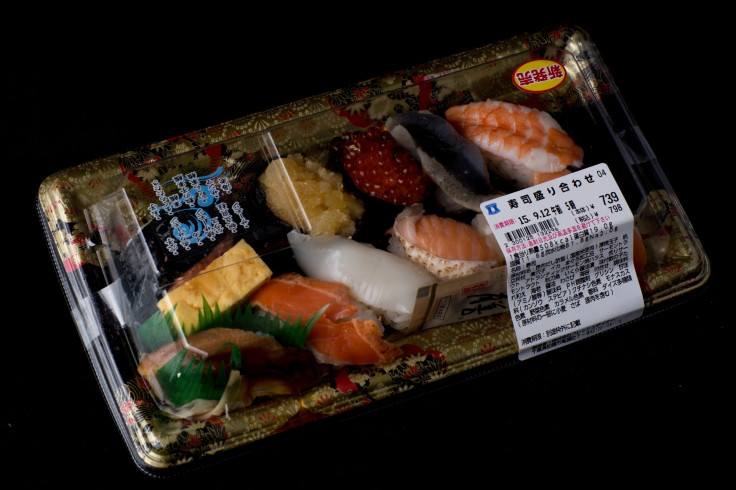Japanese Food Can Help You Live Longer: What Are The Health-Boosting Ingredients?

Experts believe that Japanese food can help you have a healthy life, and according to the London-based nutritionist Cassandra Barns, it can help in getting a long life.
Japanese diet that includes sushi, miso and pickled vegetables is also believed to be the reason behind glowing skin.
In March, a study conducted by Tokyo's National Center for Global Health and Medicine revealed that people who practice Japan's recommended dietary habits are 15 percent less likely to die of diseases. The diet also helps in reducing cardiovascular disorders and reduces chances of stroke.
"Combining a high intake of carbohydrates and fat is the perfect storm for obesity," cardiovascular research scientist James DiNicolantonio told the Huffington Post in March. "The Japanese tend to eat high carb (both rice and vegetables) but a low intake of fat."
Barns has revealed the five foods in a Japanese diet that can help in achieving a longer, healthier life, according to the Daily Mail.
Here are the top 5 foods that can help you live longer:
- Fish: Believed to be a great source of omega-3 fatty acids, responsible for keeping the heart healthy, fish can help in improving the blood circulation. This can benefit the brain, eyes and reduce inflammation. Fish is also rich in selenium that is essential for our antioxidant defenses and the immune system.
- Miso and Umami paste: Fermented soya foods in Japanese diet, containing isoflavones, miso and umami paste help women after menopause. Its consumption is linked to lower risk of breast cancer and endometrial cancer in women after menopause. "Rather than just any soya, the Japanese tend to consume traditional fermented soya foods such as miso, tempeh and natto," Barns said, according to the Daily Mail. "One of the benefits of the fermentation process is that the isoflavones are naturally converted into a form that’s much easier for the body to use. It also increases the vitamin K2 content, which plays a role in bone health and heart health too."
- Seaweed: This is rich in minerals, including iodine, zinc, magnesium, calcium, potassium and dozens of other trace minerals that help our immune system, antioxidant defenses and heart health. "Many of us don’t get enough of these minerals in our normal diet, even if we eat plenty of vegetables, because the soil they grow in can be depleted," Barns reportedly said. "This doesn’t apply to vegetables that grow in the sea, of course!"
- Matcha Tea: This is a traditional powdered green tea made from the fresh leaf tips of the tea plant and is high in a specific type of flavanols called catechins that helps boost our body’s antioxidant defenses. "In addition, matcha tea contains higher amounts of a substance called theanine, which has been found to have a relaxing effect on the mind and may help protect against the negative effects of stress," Barns said.
- Pickled Vegetables: This is a good source of natural probiotics that helps in digestion and absorption of nutrients in the food we eat. It also helps to prevent conditions associated with overactivity of the immune system, such as autoimmune diseases. "However, most pickled vegetables you buy in a supermarket or grocery store are not traditionally fermented, just pickled with vinegar or salt and pasteurized to kill off any bacteria and yeasts. So if you want to copy the Japanese with this one, you may need to look into making them yourself!" Barns added.



























